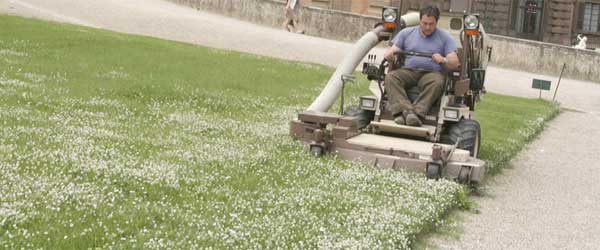The monthly meeting with your supervisor is approaching and you are getting nervous. What can you do to get the most out of it? For starters, let’s hope that you are actually having regular, one-to-one meeting with your lab head. If not, you have bigger problems than just preparing (look out for my upcoming article “Talk to Me: Good Communication with your scientific advisor”). Here are some useful strategies to help make the best use of the time.
Know what you want to get out of the meeting. Take a few minutes to be clear on what you need and what would be helpful in this discussion. Knowing your own priorities may help you keep the meeting focused. Make sure to create an agenda. ready Finally, be prepared for the conversation to go off track to someplace exciting. Unexpected conversations with your advisor are sometimes the most stimulating, interesting and helpful.
Concisely communicate your results. Make sure you are completely familiar with the results you will be sharing and that your data are in an easy to review format. Always bring graphed results with labeled charts, not only raw data. Bring all related and past data with you so you can refer to it if necessary. Don’t waste time in the meeting looking up information.
Take notes during the meeting. This demonstrates your engagement and that you plan to review and act on what you are hearing later. Write down action items and follow up on them with your advisor in person or via email to keep the dialog going. Meetings are always a bit stressful. The things you decided on will go right out of your head the minute you leave your advisor’s office.
Enjoying this article? Get hard-won lab wisdom like this delivered to your inbox 3x a week.

Join over 65,000 fellow researchers saving time, reducing stress, and seeing their experiments succeed. Unsubscribe anytime.
Next issue goes out tomorrow; don’t miss it.
Come prepared with solutions, not problems. Science has a culture of “whining” but few advisors want to waste time on that. You will always get a better dialog going if you are positive and enthusiastic. If it is in your nature to be negative, you should practice being positive with a friend. Sometimes you have to sell your ideas and positive enthusiasm will always work best. Would your advisor rather hear about a lab mate who steals everyone’s equipment or your progress on experiments for an upcoming publication?
Ask a lot of questions. You should especially ask clarification questions. Don’t ever say you understand something if you do not. Your advisor is your main mentor and teacher during your training. Don’t waste this opportunity by pretending to know what you don’t.
Learn to disagree and disagree to learn. If you think your advisor is wrong about something, always be polite and open to suggestion. It is possible that you have information she doesn’t have, figure that out by asking questions (see above) and see if the answers change your opinion. In the end, you might not be able to convince her that you are right, but the right kind of exchange will keep the communication open and positive. And do your best to accept and learn from constructive criticism. An abusive boss is a different problem, but one that gives you critical feedback is doing her job well.
Follow up after the meeting. When the meeting is coming to an end, review next steps and agree on timelines for completing them. It is often good to follow up with an email outlining the meeting outcomes and plans. Don’t forget to say thank you! Let your supervisor know that you appreciate the time he spent with you.
You made it to the end—nice work! If you’re the kind of scientist who likes figuring things out without wasting half a day on trial and error, you’ll love our newsletter. Get 3 quick reads a week, packed with hard-won lab wisdom. Join FREE here.







